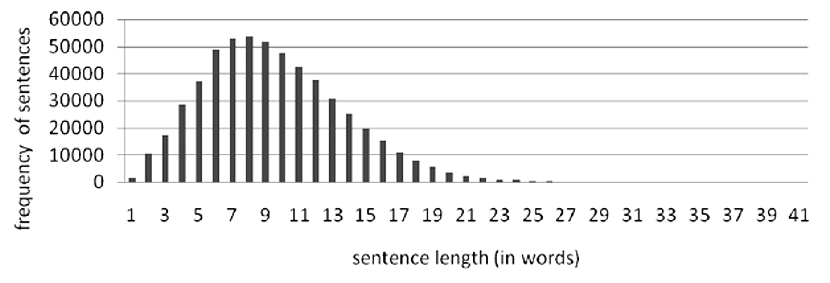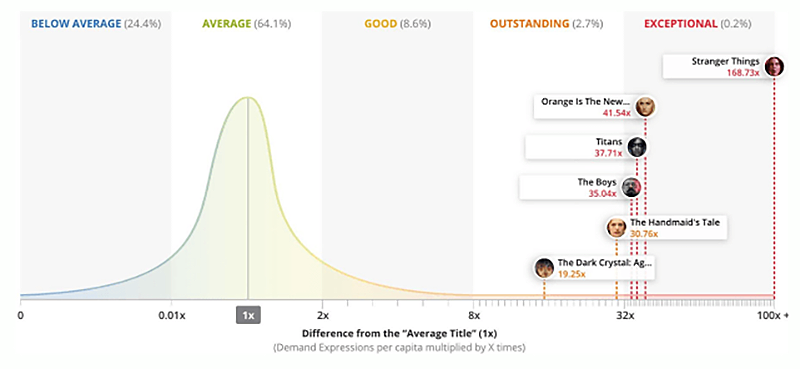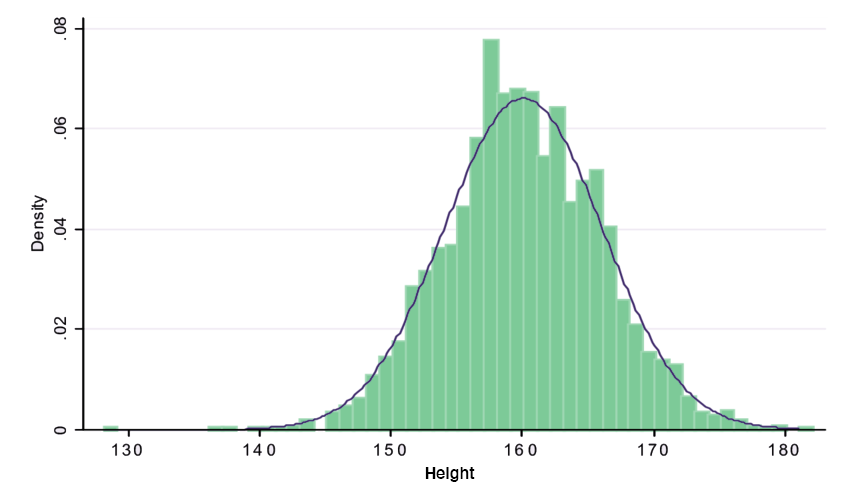The Gospel of the Triangle God
 1
1
All that exists is of great precision. Unfortunately the majority of that which exists with such precision is technically invisible to us. The good thing is that truth comes to us as a secret sense of things. We end up guessing, confused, perfection. 2
I’ve seen the Triangle God. And I’m here to tell its story.
I’ve been trying to write my way up to a non-anthropological Perspectivism. I don’t know how to do it, I don’t know exactly what it gets us. I do know that it’s a blind spot. I also don’t know what I’ll write the day after I finish it. Which is why I need to keep going.
Epistemic status: I’ve masturbated to a Bayesian inference before writing this. Check your priors. If this doesn’t make sense to you, it’s okey.
I understand that my metaphors are a problem for Rationalists. And my apophenia is a problem for everyone else. I am sorry. But I want to make this step as clear as I can: there’s a category of theories that are vital to guide us through reality.
When I say vital I don’t mean essential. I mean: either we get this right, or we are out. The thing with those theories is that they imply some morality (not in themselves, obviously, but in relationship to our narcissism - to the stories we tell ourselves). Which makes it hard to discuss them in a pure “what is reality” way. Because we suck. And everything is a defense against change.
It’s like when we hear elephants have long-term memory and our brain shuts down to the next obvious conclusion. As if this very good elephant-memory is the only thing we just learned about life. No other implications, no consequences.
Well, I’m afraid you are not going to like very much what comes next. Because I want to discuss choices and consequences. But not today. Today we will talk about Math.
Math is weird. Exhibit A: statistics. This is a distribution of length of English sentences in a corpus3:

This is the popularity of TV Shows:

It does look a bit off and not precise, fair. This is the height of men in Indonesia since 17704:

If you throw a dice a bunch of times and sum the results, it will also look like that due to the Central Limit Theorem. All those are fits of Normal distributions (a.k.a. Gaussians). This is the formula of the Gaussian that describes all those functions:
\[f(x) = \frac{1}{\sigma \sqrt{2\pi} } e^{-\frac{1}{2}\left(\frac{x-\mu}{\sigma}\right)^2}\]Where \(\mu\) and \(\sigma\) are number that will be example-specific.
Woah, my dude, wait a minute. What is this “\(\pi\)” thing over there?
It’s pi. It’s the ratio of the circumference of the circle and its diameter.
Are you shitting me? What does Indonesia, TV shows and English sentences have to do with a circle?
I’m not sure.
Fine. What about \(e\)?
It’s not a big deal, it’s just a number where \(e^{\pi i} + 1 = 0\).
Stop messing with me. What is \(i\)?
It’s just that \(i * i = -1\) like if \(i\) was \(\sqrt{-1}\), but it’s not real.
What the fuck do you mean not real? We were talking about human height and watching TV.
I’m sorry. It’s the way things are. I’m sure the formula is right. It’s Math. It’s just that Math is weird.
Exhibit B: Physics.
In quantum mechanics, Heinsenberg’s uncertainty principle asserts a fundamental limit to the precision that we can measure the position and momentum of a particle:
\[\sigma_{x}\sigma_{p} \ge \frac{h}{4\pi}\]\(\sigma\) is the standard deviation. \(h\) is Planck’s constant, the energy contained in a photon. \(\pi\) is the ration between the circumference and the diameter of a circle. Because that’s how the universe works.
I don’t want to overplay the \(\pi\) showing up everywhere hand. The greater point is that every Physics equation is a miracle. We should have been astonished all the time by the fact that a handful of math operations are predictive of how everything behaves from planets, to atoms, to light. But time heals all miracles.
I have something to say about the ontological situation of Math, but before I get to that, I feel I need to clean up the mess that was left behind by, well, you.
This is not a “is Math discovered or invented?” conversation. Math is a language, therefore contingent to human brains, historical processes. That doesn’t mean much except that we could have arrived at a slightly different Math if we had three fingers or the Persians were lazier. It definitely does not mean that Math is colonialist, slave mentality, or any garbage that CK Raju has ever said about it (based on what he wrote, he doesn’t understand basic math nor computers. I’m willing to put money on it. HMU. I’m home all day). Links are here for schadenfreude purposes.
Ok, so it seems to be mostly uncontroversial that Math is a language. But then what does Math talk about? Well, Mathematical Objects (© Plato, 300 BC). You see, Mathematics is not just logic nor it can be reduced to logic. Smart folks have tried to. A lot. It just isn’t. Math rules can be applied in a logical way, but the rules themselves can’t be summoned out of logic.
I don’t want to defend people who don’t merit defense (talking to you, my boy Quine), but I want to explain it enough so you know where I’m coming from. We are all familiar with Plato’s Forms: the shadows in the cave, cast by light hitting the Forms from the perfect realm of Ideas. Most people understand this as a “there is an objective reality, we just have imperfect access to it, damn my english glasses”. Most people are wrong. Not that the conclusion is incorrect, but the interpretation is. This was never intended to be about substance. It’s a description of thinking.
If I ask you to explain how \(2 + 3 = 5\), you can raise your fingers and show me. But this is not a proof that \(2 + 3\) is equal to \(5\). This is a proof that your fingers behave as numbers do. Good for your fingers, but irrelevant for Math. Don’t believe me? Let me show you.
Imagine we grab 2 rocks and put them in a bag, we then grab 3 rocks and put them in the same bag. We now empty the bag on the floor and we count 6 rocks. Does this experiment put you in a mental state where you’ve started to doubt Math? No. Your initial reaction (and every subsequent reaction) will be to doubt the experiment. Maybe there was an extra rock in the bag? Maybe a rock crumbled in two during the process? Maybe there was an extra rock on the floor to begin with? Maybe you miscounted? Anyway: \(2 + 3 = 5\) is not an experimental result. If something goes wrong, blame reality. A.k.a, The US Democratic Party strategy, 2016-2020.
Oh, it’s because I have strong priors that Math works. You sure do. But that’s kinda my point. To do Math is to act as if we are dealing with ideal platonic objects. The numbers are real, the operations that connect them are real. The geometry is real (even the new ones are real). They are a truth beyond physical reality. Pure Truth-capital-T. But beyond that…
Back to the rocks. 6 rocks came out. We don’t doubt the Math. But we also don’t doubt that Math works with reality. That it does apply. It’s ok to doubt the particulars of the example, but not that Math can be applied to reality. If it’s not working it’s because you misapplied it.
So we seem to know very deeply that: Math is correct; and it’s able to describe reality.
I’m not claiming this is a dogma or that we sheepishly accepted the mathematics of the patriarchal white-supremacist colonialism. I’m not blaming anyone for the situation. There’s nothing to blame anyone for. The problem is exactly the opposite. We did question. For thousands of years:
We are in a position similar to that of a man who was provided with a bunch of keys and who, having to open several doors in succession, always hit on the right key on the first or second trial. He became skeptical concerning the uniqueness of the coordination between keys and doors. 5
We took it for granted that Math is a language. But there’s something weird about Math. Because it doesn’t do something that all other languages do. Other languages don’t work very well. They seem wobbly, a loose match, they have friction with reality. But not Math, Math works well. It fits.
How did we end up here? Did we just get lucky? Over five thousand years of mostly garbage? Think about the history of mankind: a sequence of being wrong and causing damage everywhere. We destroyed things we didn’t even know were there. But technology…. Shut up, Pinker. The point is not that some things didn’t get better. Is that everything we do is universally precarious. Kinda works, good enough, I guess. Let’s get back to it once we have more time.
Except for Math. We got this one perfectly. We did improve on it, sure, but we were mostly right all along. Here, let me try to measure the height of this pyramid. Oh, cool, I can use this to figure out the motion of the stars too. Oh, and this explains subatomic particles as well? Oh lol. I guess we are just very talented. Doesn’t that look suspicious to you?
The miracle of the appropriateness of the language of mathematics for the formulation of the laws of physics is a wonderful gift which we neither understand nor deserve. 5
Or as Samzdat puts is: “It’s uncertain if we do know anything, but suppose that we do. What would it look like for that to be possible?” Well, it would look like Mathematics.
Don’t mistake me. I don’t think God created Math. Otherwise, we would be in a similar situation: with another language that tries (and kinda fails) to explain a part of reality.
God didn’t create Math. If anything, God is Math.

Let’s talk science hierarchy. Math. Physics. Chemistry. Biology. Sociology.
The original plan of Comte was to understand those fields as a single scientific positivist narrative. I don’t particularly care, but an important take is that a higher level is built upon the previous level, but can’t be reduced to it.
This is a bit structuralist, but it’s worth keeping in mind. The game of Chemistry is played on the field of Physics, but you can’t understand Chemistry by just learning Physics. There’s some extra knowledge that Chemistry brings, even if they never really escape Physics.
Also, as far as scientific theories go, we are talking about languages that codify knowledge. Metaphors. Theories. “The language of Biology is based on (but can’t be reduced to) the language of Chemistry”. I.e., not really ontological. True. But I don’t care.
Nothing exists except atoms and empty space, everything else is opinion. Okey. But is it really a stretch to say that the object of sociology deals with biological entities interacting? Or that biology entities are made of blobs of chemicals? It seems reasonable to jump out of the scientific taxonomy of languages into an ontological understanding of reality. As if this is not only the way we decided to structure knowledge, but that is also a little bit about how reality itself is.
And if that’s the case. Well. If carbon and hydrogen are the building blocks of Biology. And neutrons, gravity, and energy are the building blocks of Chemistry. Someone is bound to start ask questions about where are the building blocks of Physics. And now those Mathematical Objects are looking like pretty good candidates. Oh fuck.
Can you see it now? The Triangle God. The principle that structures reality. The playing field of Physics (not only of the language, but of the physical reality itself). The fundamental building blocks.
All praise to the Triangle God.
God does not manifest himself only in physical form as he appeared in form of a triangle.6

Except that, and I hate to break the cathartic moment, this is fucking crazy.
I admit this took me a while to figure out. I said it jokingly. “The Triangle God”. It was a way to release some pressure, to acknowledge I had reached a dead end. But realistically, I don’t take myself seriously enough to be able the indulge in theology. It sounds crazy to me. I don’t know what to do with Math, but I know that whatever I do, it won’t be the foundation of a new cosmology. I’m too invested in not knowing.
Here’s a theory of doubt. The difference between doubt and suspicion is that doubt focuses on the one who doubts, while suspicion focuses on the other. This is how you end up in Manichaeism. How you end up in the culture wars. How you end up with us.
Suspicion is part of the foundation of any modern critical thinking. Marx teaches us to be suspicious of how natural class division feels and neutral the State seems to be about it. Freud teaches us to be suspicious of reason, of conscience. Nietzsche teaches us to be suspicious of… well, everything? Of Truth, of Fairness, of Good, of Morals, even of grammar. Suspicion is the wheel of modern thinking. 7
But it was Nietzsche himself who realized that a suspicion that is immune to doubt becomes religious dogma. Maybe you are right, maybe you are full of shit. But protect yourself too much from the possibility of shitness, and you become part of the problem. Not to mention, you start looking a bit weird to everyone around you.
So the Triangle God has to die. Not for our sins, but for our aspiring virtues. What kinda people would we be if we kept it alive? Gods exist to structure the social reality, not the physical one. The Triangle God was too perfect for its own good.
So back to the metaphysical drawing board. Math is still too correct, too perfect. What if we got this backwards? What if the correctness and realism of Math comes not from it being a fundamental building block, but from it being a logical conclusion. Wait, didn’t you say Math was not Logic? Yes. I don’t mean that Math is a logical conclusion « of logic ». But what if Math is a logical conclusion of reality?
It always bothered me in the study of emergent properties of systems that the definition of complexity (and simplicity) is too judgmental. Take, for example, the SEP:
Ontological emergency see the physical world as entirely constituted by physical structures, simple or composite. But composites are not (always) mere aggregates of the simples. There are layered strata, or levels, of objects, based on increasing complexity.
Complexity here is not the information theory concept, but seems used as “more complicated”, almost as a conclusion of it being composite. But that is not a given. A trail formed by ants is not more complex than an ant, or their social dynamics. It’s just a path. And yet, it’s an emergent property of all of those much more complex things. Is a zebra stripe more complex than the ontogenesis of a zebra and it’s intercelular interaction? Composition doesn’t imply complexity. Complexity doesn’t imply composition.
It’s true that causes are simpler than consequences. It’s the 2nd law of thermodynamics, a.k.a., the we are all fucked law of everything. But the 2nd law only talks about isolated systems. The cause + consequence is more complex than the cause by itself. I.e., ants and paths are more complex than ants, but that doesn’t make the path more complex than ants.

Emergent properties play a few tricks on us.
We perceive emergent properties like obvious conclusions. Inevitable. We don’t always have access to the process, but we abstract it away. It’s like our brains are happy to not going full banana over how the fuck there are stripes on this weird horse. We are very fast at getting used to crazy. Because there is crazy everywhere and we are hungry. Emergency hides complexity behind inevitability. It’s not that emergencies are not inevitable. It’s just that they hide their causes.
Emergent properties without extra complexity can be deceiving. We can rationalize what came first, the ant before the path. But it’s daring us to reverse, to misunderstand. A kind of semantic post hoc ergo propter hoc. Simpler, therefore before. And of course, we do it all the time.
Abstractly, if \(B\) always emerges out of \(A\) but we don’t understand the causal connection between them, then we are kinda bound to say they are at the same level. And if we’ve never seen a reality without \(A\), then well, \(B\) will also just be. We wouldn’t be able to understand a world without \(B\). And maybe, if \(B\) is simpler than \(A\), we might just be tempted to, you know, imagine that \(B\) came first.
The ontological switcheroo.
It’s probably obvious at this point where I’m going with this. But what if Math is the fundamental emergent property of reality? Not the Math language, the Math Objects. What if, when anything exists, it must exist “with great precision”. A precision that makes Mathematical Objects emerge.
If that were true, what would our cosmology look like? Well, it would feel self-evident that Math is everywhere. That for something to exist, it must exist also mathematically. As an almost condition-of-being. Because we can’t conceive anything that exists without Math. And we don’t know what not existing looks like.
But wait, doesn’t Math come first? Well, that’s the switcheroo. If Math is an ubiquitous property of everything and yet simpler than Physics, then it would be reasonable that we have, you know, reversed the order. We feel like Math comes first, because it’s simpler. When in reality, it emerged from Physics, not the contrary.
Maybe it’s why Math explains so many things so well. It’s a consequence. An inevitable logical consequence of existing, not a theory about Nature. This doesn’t mean that Math is everything. Just that to be implies to be mathematically, and Math just has to worry about the second part and everything else will follow. A mathematical conclusion becomes a condition for being.
Sure. Whatever. This, the opposite of this, neither and both. Does this allow me to go outside without a mask? How do I monetize this shit? You know there’s a reason why mathematical philosophers are not invited to parties, right? Yeah. I do. And I don’t care that much either. I don’t plan to die on this particular hill.

Come to think of it, emergent properties and underlying structures can always be merged at a certain distance. In fact, that seems to be the case we see ourselves in with Math. Apart from conversations about ontology, epistemology, or some very philosophical Physics questions, it doesn’t matter what Math really is. What a fucking waste of time…
Which is, in a way, surprising. Human knowledge has been shockingly effective. We are bothered by the limits of the speed of light. Press a button and someone in Paris can look into the eyes of someone in Tokyo. There’s electricity and my toilet flushes. Microscopes and satellites. This is all extremely unexpected for a bunch of monkeys. Specially a bunch of monkeys that don’t even understand how can they understand anything. Or what the number 12 really is.
Maybe this argument is pointless. Given that we got this far without solving it, maybe it’s inconsequential. An ontological Fermat Last Theorem. Sure. Maybe the reason we were able to build all this engineering monstrosity without this certainty is not because this particular argument over objective reality of math doesn’t matter. Maybe it’s because what objective reality is doesn’t matter. I know that this may sound like I’m pulling some anti-scientific garbage on you. But I’m really not.
Science is fine. Science is great. But we’ve been building science without knowing what is and what isn’t. Maybe science doesn’t really need the concept of “objective reality”. People talk all the time about the idea that we live in a simulation. And nobody seems to be worried that the Navier-Stokes equation is going to change because of that, right?
The conversation about reality is less about what can be hacked of it (which is mostly Science), but more about what are the (mostly moral) consequences of believing reality is constituted in a particular way.
I get it, you hate some people and some people hate you back. And how can you explain that the people you hate are wrong without talking about The Objective Reality. I empathize. But that’s not science, right? It’s at best a defense of science.
Science has been doing its thing with relative success. And Plato is still on hold for two thousand years on the shitiest callcenter ever. We don’t know what is, but things keep being and melded with in spite of that. And we keep understanding more and more of them.
It’s hard to pull this argument, specially in a world where we can’t agree on really basic stuff. But I’d suggest that is precisely because of this that we need a better understanding of the implications of objective reality. I think it’s close to what Samzdat has tried to do with the mouse deer.
I mean, you want to keep your guns, fine. Keep them. But those are not the weapons of science, because science doesn’t need them. Those are the weapons of a fight about the social and moral implications of what we believe to be truth. I’m not judging, but those are the weapons of a religious fight.
This is liberation.
It feels we need to break up understanding the world and seeking objective reality. People want the former and end up invested in the later. If you can drop the fundamental truth about Math, you can also drop the fundamental truth about most things. And the world will still spin.
Realizing that the search for objective reality is, in the end, a search for meaning can be liberating. It’s not about what is. But about what it implies. Most scientific justifications for abhorrent acts are firmly grounded on misunderstanding this simple fact. The scientific version of just following orders. You act in a particular way, because you convinced yourself that this is the way reality wants you to act.
If you feel you are chasing some absolute stance, you will feel like you have no choice. Like if the conclusion presented is immutable and you are forced to follow it to the ground. “It’s not abuse, it’s natural selection”. Nope. Being an asshole is always a choice. Being indifferent is not a logical conclusion. Reality is not a security blanket.
I understand it’s not a simple task. Ideally, morality could be designed. But it also needs to be grounded. It’s what nihilism has been all about. We need a language for it. Role models. Dimensions to grow. Better conversations. But it all starts with acknowledging the problem.
Before, I praised the engineering of our time. But we have been fucking garbage. We can’t seem to coordinate more than zero people. We have absolutely no fucking idea what’s going on. We are lost in arguments that are thousand years old, because our tiny brains can’t seem to keep up with the conversation. There are people who live miserably and without choice. We are at the point that our best hope is to build a machine that magically will solve the problems we can’t even articulate, which very likely will only cause more problems. We don’t know what or how to feel, so hating will do. And we want to win, oh my god how much we want to win.
It may seem that I know the answers. I can assure you that I don’t. I started this with a curiosity about Math. And now I’m here. Considering that the Triangle God was a metaphor for Math, for objective reality, for amoralism. The new dead holy trinity.
More than a call to step up, to face the problems, this is about permission. Permission to decide by yourself what are the fundamentals of reality. Not in the “I believe in crystal energy” sense. That’s fucking crazy. But in the sense that you get to choose what matters, and design around the outcome of that decision. Permission to be responsible for reality, not just an external independent analyst.
Reason is not about things that are independent of opinion. Reason is about the choices you make. And choices are about consequences. Everything else is a waste of time.
And we are out of it.
-
Francisco Goya, The Adoration of the Name of The Lord, 1772. ↩
-
Clarice Lispector, in A Descoberta do Mundo. ↩
-
The biological standard of living and body height in colonial and post-colonial Indonesia, 1770–2000 ↩
-
The Unreasonable Effectiveness of Mathematics in the Natural Sciences, Eugene P. Wigner, 1959. ↩ ↩2
-
Lyric Poems from Around the World: Epic Thinks Beyond Feelings: Lyric Poems on Early Life of Dr. Martin Luther King Jr. Tribute to His Early Life 5-30 Years & Other Lyric Poems. ↩
-
As most of what I write, this was originally not my own idea. But I’ve lost the source. ↩